The complete history of the New Hope Baptist Church could fill a volume of books. Organized July 27, 1873, New Hope Baptist Church has the distinction of being the first Black Church in Dallas, Texas, entirely organized and owned by Black people. The idea of the church began with prayer meetings held by a few loyal Christians in the log cabin home of Sister Mattie Rainey, located on the corner of what is now Fairmount Street and Munger Avenue.
The entire group consisted of Sisters Mattie Rainey, Emma Robinson, Love Vickey Drake, Lucenda Williams, Emma Starks, Sally Taylor and Brother Jerry Taylor. After prayerful consideration, these seven dedicated pioneers decided to unite their efforts to form a church. They contacted the American Baptist Home Mission Society, which recommended the Reverend John Hay, a traveling missionary evangelist, as the person to organize their prayer band into a church. On the fourth Sunday in July 1873 their dream of a church was realized with the organization of the New Hope Baptist Church.
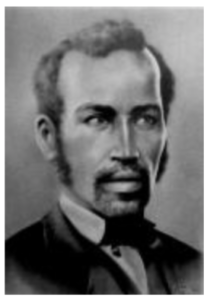
Reverend Hay, a tireless religious leader, remained for nearly two to increase and guide his faithful nock. The Very presence Of New Hope Baptist Church in Dallas, Texas, gave stability and respect to many Black citizens who only 8 years before had been freed from the yoke of slavery. The Reverend John Hay (1873 — 1874) Was followed by the reverend R. Griggs (1874 — 1884).
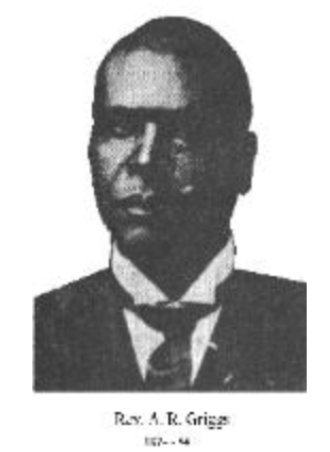
Reverend Griggs proved to be a true man Of God. His leadership Strengthened the Church He directed it into the leadership that it has held for the past 139 years.
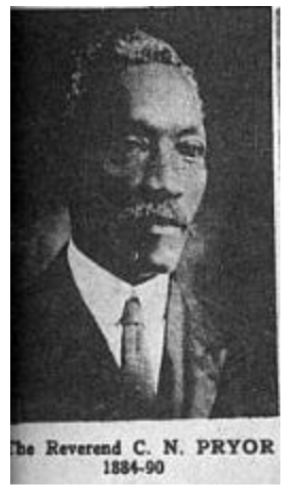
The Reverend C. N. Pryor (1884-1890) the third minister, a leader Who increased the dignity and promoted the growth and success of the church. The Reverend W. D. Isaac (1890-1898), a graduate of Central Baptist Academy and completed theological courses at Bishop College in Marshall. Texas, was one of the most dynamic Christian leaders of his age. His education and previous church experience projected New Hope Baptist Church into a new realm of progress. He became manager of the Star Publishing Company, which was associated with the Dallas Express, an early Black newspaper. This paper gave voice to political disenfranchisement and lack of job and educational opportunities. Most of these same problems are still being voiced today. Reverend Isaac expanded the church youth program, encouraged singing, and taught social etiquette. He truly developed the church into a center for Christian community improvement.
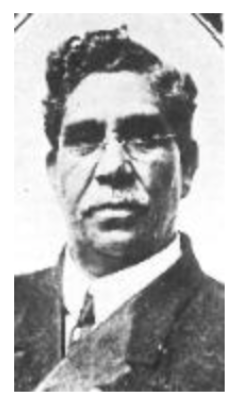
Dr. Alexander Stephens Jackson (1899 — 1936) was both distinguished and well educated. He was a graduate of Atlanta and Colgate Universities. He brought with him experience as a teacher and a preacher. He seemed destined to be a history maker and leader of men. Time and space will not permit an accurate listing of the many "firsts" that were brought to fruition during his lengthy tenure as pastor of New Hope Baptist Church. The church built and paid for a new church which was the first large brick building in Dallas, owned and constructed by Blacks.
It Soon became the center for all cultural, political and educational gathering in the City; He organized the Patron's League, an organization dedicated to bringing nationally known Black speakers to Dallas, such as Booker T. Washington, Mary Church Terrell, W.B. Dubois and many others. Dr. Jackson was also fortunate to have a large, loving and talented family. As age began to limit him, his capable son, the Reverend Maynard Jackson became co-pastor ( 1934—1945).
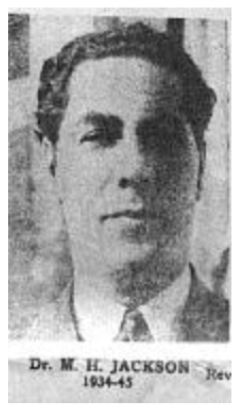
Reverend Maynard Jackson later became the full-time pastor of New Hope (1934—1945). He was a graduate Of Morehouse College, Garrett School of Theology and studied at Chicago and Northwestern Universities. As successor to his father, he continued the path of progress. His leadership gave birth to the First Progressive Voters League in Dallas in 1936. His son, Maynard Jackson, Jr. the first Black mayor of Atlanta, Georgia, was born and grew up partially in New Hope Baptist Church.
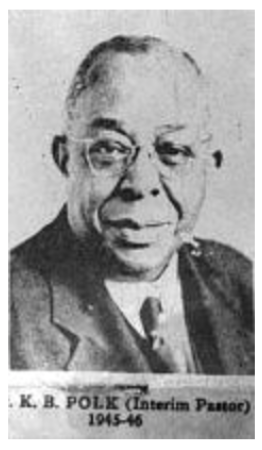
The Reverend KB. Polk (1945-1946) was selected to serve as interim pastor when Rev. Maynard Jackson resigned to accept a new charge in Atlanta, Georgia. Rev. Polk was not only a minister but also a talented musician, schoolteacher school principal in Dallas.
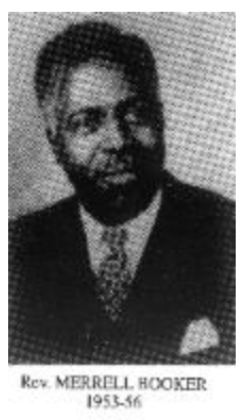
Dr. O.M. Locust (1946—1951) accepted the pastorate as well as the challenge to perpetuate the greatness that New Hope Baptist Church had achieved. Dr. Locust was a graduate of Wilberforce and Ohio Wesleyan Universities in Ohio, which was his home state. He had also received an honorary degree of Doctor of Divinity and was a former professor of English, Bible and Homiletics in the Central Baptist Theological Seminary at Topeka, Kansas. Dr. Locust and the Church remained involved in active, positive community action. He resigned in 1951 to become a full—time employee Of the National Baptist Convention Mission Board.


